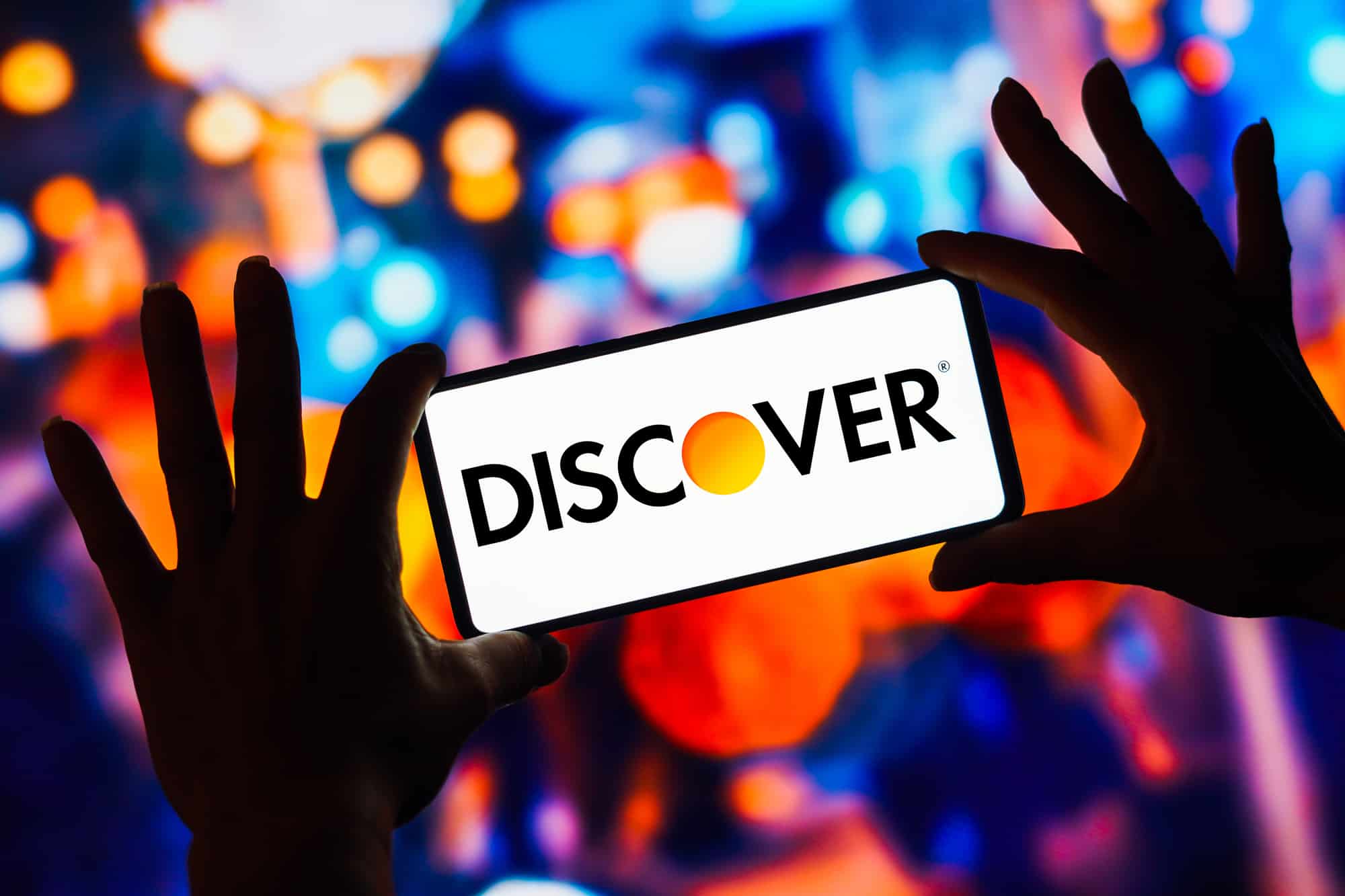Whether in-person or over Zoom, the interview is a big step toward a job. And besides your A-game, do you know what to bring to a job interview? Or what not to bring to a job interview? Having the right items with you during a job interview will help you feel confident and prepared, giving you the boost you need to shine.
What to Bring to a Job Interview
No matter where your interview is, career adviser Laci Baker, MEd and certified career management coach, suggests creating a checklist of everything you need to bring to the job interview. “This makes the day of easier, and you can avoid forgetting something important,” she says.
You can also use a checklist to ensure you have everything you need on the big day.
What to Bring to an Interview That’s In Person
You know that what you wear to a job interview is a critical part of your interview, but so is bringing the right gear. Here’s what you should bring to an interview that’s in person.
Your Resume
Though it doesn’t happen often, you might need to refer to your resume during the interview. It’s possible the interviewer doesn’t have their copy handy or you need to look at it to figure something out. While you could look up the digital version on your phone, you never know when a poor signal might prevent that. And, even if you can get to it, trying to read your resume on your phone may not be as easy as you’d like.

Resume Writing Masterclass
Discover the ins and outs of writing a resume that pops. You'll learn what goes where and how to talk about your accomplishments.
Avg. Time: Time: 5-6 hours
Skills you’ll build: Writing these sections: qualifications statement, skills, experience, education, internship
Have a paper copy of your resume handy, just in case. While you’re at it, print out several copies on nice paper that isn’t stained or crinkled. This way, if the interviewer asks you for one, you’ll “show you’re prepared and took the extra step to get it printed, meaning you really want the job,” Olga Eippert, former director of people operations at Forage, explains.
Directions
Part of your in-person interview prep includes figuring out how you’re going to get there. Using your phone’s GPS is fine, but, just like your resume, consider printing a hard copy or saving the directions to your phone’s camera roll just in case. If bad reception knocks out your connection to the satellites, old-fashioned paper directions can save the day.
If possible, go to the interview site beforehand to identify anything that may delay you, like road construction. It can also help you figure out where to park and where the building is located. While you’re at it, come up with a few routes and methods (car, Uber, public transportation) for getting to the interview in case your primary plan doesn’t work.
A Professional-Looking Bag
One tote bag or briefcase for stashing everything is a more professional and polished look than juggling several items in your hands and under your arms. It doesn’t need to be a big bag, just big enough to hold what you need. You can use a backpack as long as it’s clean and not “well-used” (as in, frayed, torn, or falling apart).

Expert Tip
Throw a folder with rigid sides or a padfolio in your bag to protect your paper resume and any other documents you bring to the job interview.
Breath Mints
Better safe than sorry! Pack a small container of mints to freshen your breath. A small bottle of mouthwash is also OK, but make sure it’s in a leakproof container (or two!). Skip the gum. You don’t want to forget about it and spit it out on your way to the interview room or chew it while you’re interviewing. Bonus: Add some floss to your bag in case you eat something before the interview.
Your ID
Make sure you bring your ID to your job interview. Some buildings and offices have strict visitor policies and you may need to show your ID to prove you’re “on the list.”
Emergency Items
If you have room in your bag, consider including a small stash of Band-Aids, stain remover, and even deodorant for minor emergencies. If you don’t have room, that’s fine. These aren’t essential items to bring to a job interview.
Shoes
Shoes fall into the “maybe” category. Depending on how far you’re walking and the time of year, you may want to stash your interview shoes in your bag and wear more comfortable or weather-appropriate shoes to and from the interview.
Water and a Snack
Hopefully, your interviewer will offer you something to drink during the interview. But if they don’t, at least you’ll be prepared. Either keep the water bottle in your bag when you aren’t using it or make sure to cap the bottle tightly between sips. The last thing you want is to spill water all over the interviewer! Bring a quick snack for after the interview, in case things go long and you end up hungry.
What to Bring to an Interview That’s Virtual
Even though you’re not traveling, you still need to prepare for your virtual interview. Here’s your checklist to ensure you have everything handy even when you’re interviewing from the comfort of your home.
Your Printed Resume
While you won’t need multiple copies to share with the interviewer, bring at least one paper copy of your resume to your virtual interview. Why? First, if you don’t have multiple screens and need to look at your resume, you’ll have to toggle between different tabs. While that happens in virtual meetings, it could make you look unprepared during a job interview. Second, you never know when technology will fail and you’re unable to get to it. If that happens, a hard copy of your resume will save the day.
>>MORE: 7 Types of Resumes: Which Is Right for You?
A Fully-Charged Device (and Backup)
A battery at 100% is always a good idea for virtual interviews — even if you can plug your device into a wall outlet. But it’s smart to have an external, fully-charged battery on hand just in case.
Updated Software
Make sure your device is up-to-date, and you’ve got the right hardware and software for the interviewing platform. Conduct a tech check before the interview. You don’t want to log in right on time, only to have to spend five minutes updating and rebooting.

Interview Success
Uncover the tips and tricks for interview success in this free course from BCLP. You'll learn how to ace a video interview, the online skills assessment, and more.
Avg. Time: 4-5 hours
Skills you’ll build: Video interviewing, public speaking, organization, time management
A Backup Plan
A virtual interview is only as good as its connection. While conducting your interview from someplace quiet and distraction-free usually means “from home,” if the power or internet goes out, you’ll need a backup plan.
Doing your interview from the car can work in a pinch. You’ll have to explain your situation, but the interviewer might be impressed by your creative thinking and problem-solving skills. A friend’s house or the library might also be options, but if you can’t find a quiet place to conduct your interview, you may be better off rescheduling.
>>Looking for more virtual interview advice? Read up on Zoom interview tips.
What to Bring to Any Job Interview
Here’s what to bring to a job interview, no matter where it is.
Pens and Paper
From writing down key details to formulate follow-up questions to jotting down someone’s name and email for a thank you note, a pen (or three!), and a notepad are essential items to bring to a job interview. Consider bringing a pencil, too, as a backup to your pens.
Names
Being nervous is normal during a job interview, and preparation can help you stay calm. Having the name or names of those you’re meeting with (and their contact information) will help you remember who they are and get their name right the first time.
Research
A big part of interview prep is researching the organization and people to help you better understand the company, its mission, and how you’d fit in. Keep that research handy during your interview to help you answer questions and ask a few of your own.
>>MORE: What Is Company Culture (and Why Does It Matter)?
Your Questions
At the end of the interview, you’ll have the opportunity to ask questions. These should be thoughtful, insightful, and prepared in advance. While you may formulate questions during the interview, bringing a few questions to the job interview demonstrates your deep interest in the role.

Technical Interview Prep
Get ready to nail your technical interview in this free course from Girls Who Code. You'll practice whiteboarding, take home assessments, and more.
Avg. Time: 5-6 hours
Skills you’ll build: Hash table, array, matrix, dynamic programming
Your Portfolio
Examples of your work demonstrate your real-world abilities. Whether it’s an online portfolio or lookbook of your best work, examples of your skills can make the difference between getting the job (or not!).
Well-Prepared Answers
You don’t want to sound too rehearsed or robotic, but make sure you’ve prepped answers to common interview questions.
What Not to Bring to a Job Interview
So, that’s an extensive list of what to bring to a job interview. But we’re not done yet. In addition to what to bring, here’s what not to bring to a job interview.
Your Phone
Make sure you silence your phone, preferably by setting it to airplane or do not disturb mode. Unless, of course, you have a phone interview — in which case, your phone is an integral part of the process.
Earbuds or Headphones
If you’re doing a virtual interview, you may need headphones and that’s fine. During an in-person interview, stash the earbuds or headphones. There’s no need to wear them when you’re interviewing face-to-face.
Perfume, Cologne, or Aftershave
It’s best to tone these products down during an interview. If nothing else, your interviewer may be allergic, and they can’t conduct the interview if they keep sneezing.
Lunch
Eating during an interview is frowned upon (unless it’s a lunch interview!) a small snack in your bag is fine, but bringing your whole lunch might lead to smells and leaks that distract from your interview. If you need lunch, eat before or after your interview.
Recording Devices
While recording a mock interview is a great way to practice and get feedback, refrain from trying to record your actual interview. “I saw someone bring a recorder to an interview,” says Elisa Pineda, former senior recruiter at Forage. “It was very awkward.”
If you live in a two-party state, you’re legally obligated to ask for and obtain consent from everyone to record any conversation. In an interview, you’ll explicitly need the recruiter’s permission to record it, and if they don’t give it to you, you’re out of luck. In a one-party state, you may not need the other party’s permission, but the interviewer may not be thrilled with you recording the conversation without their knowledge.
Pets
At an in-person interview, a service animal is welcome, but a pet is not. And the same is true for a virtual interview. Fido or Fluffy parking themselves in front of the camera may not be the best look during an interview (no matter how cute they are).
Get Interview Ready
Got a job interview coming up? Get prepped and ready for it. Read up on answers to common interview questions.
- How to Answer: ‘Where Do You See Yourself in 5 Years?’
- Interview Questions, Answered: ‘What Are Your Salary Expectations?’
- How to Answer: ‘Why Do You Think You Are Qualified for This Position?’
- How to Answer: ‘What Motivates You?’ in a Job Interview
- How to Answer: ‘Tell Me About Yourself’
- What Is a ‘Good’ Weakness for a Job Interview?
- Interview Questions, Answered: ‘What Is Your Greatest Strength?’
- How to Answer: ‘Why Are You Applying for This Position?’
Frequently Asked Questions
Yes! You should bring your resume to an interview. You may need to refer to it during the interview and at an in-person interview, the hiring manager may ask you for a copy.
That’s up to you. In a post-COVID world, you may be more comfortable supplying your own drink, and that’s OK.
Technically yes, but consider this. It’s likely the interviewer will hear your phone buzzing during the interview. Once or twice isn’t a big deal, but if it’s going off repeatedly, the interviewer might worry there’s an emergency. Worse, you might think there’s an emergency. Better to set it to silent or completely off.
Showing up to an interview empty-handed could indicate to the employer that you’re unprepared or don’t care about the job. You don’t have to bring everything on our list, but at a minimum bring your resume, a notepad, and pen or pencil.
Absolutely! Talking about your skills and abilities (and the impact they have) is one thing. Showing the final product can help you stand out from the other applicants.
Bring the same things to a one-way interview you’d bring to a video interview. Make sure your device works with the platform, have your resume handy, and bring a notepad and pen or pencil. You never know what kinds of questions or important info might pop up that you need to jot down.
Image credit: Canva

